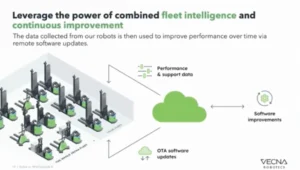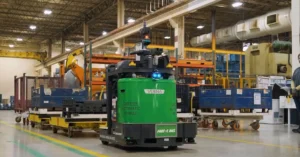Tactical AI-Powered Planes are Breaking Ground. How Will this Impact the Role of Test Pilots?
You would probably never guess that way back in 1939, General Motors developed the first self-driving car model controlled by electromagnetic fields. While this was a magnificent feat in 1939, today we don’t even bat an eye at AI-powered cars, which held a market share of over 6 billion U.S. dollars in 2022. But what about AI-powered planes?
Autonomous capabilities on aircrafts are nothing new; autopilot has been around since at least World War II. What is new is that OEMs are starting to stress test unmanned aircrafts where AI is the one and only pilot.
Just last month, AI was used by Lockheed Martin to fly a tactical training aircraft, the Variable In-flight Simulation Test Aircraft (VISTA), for over 17 hours. At least according to the defense contractor, this is the first time AI has ever solo piloted a tactical aircraft. This is a vote of confidence for AI-piloted planes; since VISTA is designed to “mimic the performance characteristics of other aircraft,” a successful 17-hour test flight proves AI is more than capable of running nuanced flight controls and aircraft responsiveness. Lockheed Martin plans to use VISTA to help the U.S. Air Force “rapidly mature autonomy for uncrewed platforms and allow us to deliver tactically relevant capability to our warfighter.”
Operationally, deploying AI for testing new vehicle systems could kill two birds with one stone by developing more mature unmanned aircrafts while also speeding up the testing process of new aircrafts. But how does this impact the workforce of test pilots who typically do these test flights? Is this a signal that the role of the test pilot could be phased out? And in general, how might capable AI-powered planes impact professional pilots, commercial or otherwise? Craig Picken, President of Northstar Group, an aviation and aerospace recruitment company, gives his assessment of the impact of Lockheed Martin’s successful AI pilot flight test.
Craig’s Thoughts:
“AI will not be replacing test pilots anytime in the near future for several different reasons, but primarily, test pilots are there to test aircraft for the human machine interface. And to have a successful evaluation of a human machine interface, you need to have the human involved.
So, I see test pilots being around for a long time, testing aircraft, testing airliners, testing systems, doing a lot of work. And no, I don’t think they’re going to be replaced by AI, although they will be assisted by AI in a lot of the data collection.”
Article written by Cara Schildmeyer.








